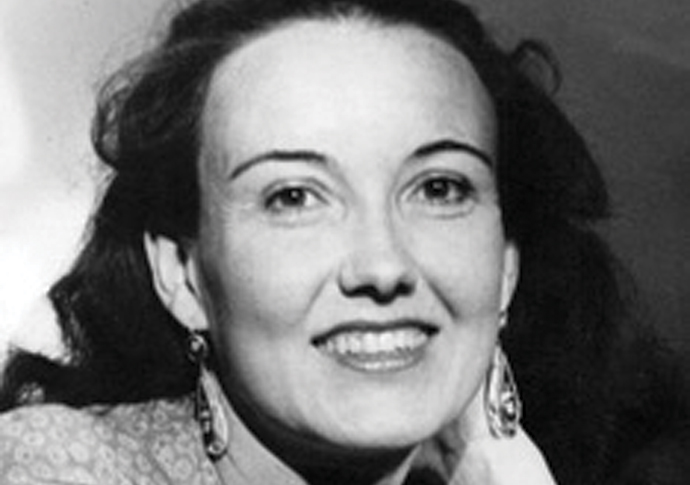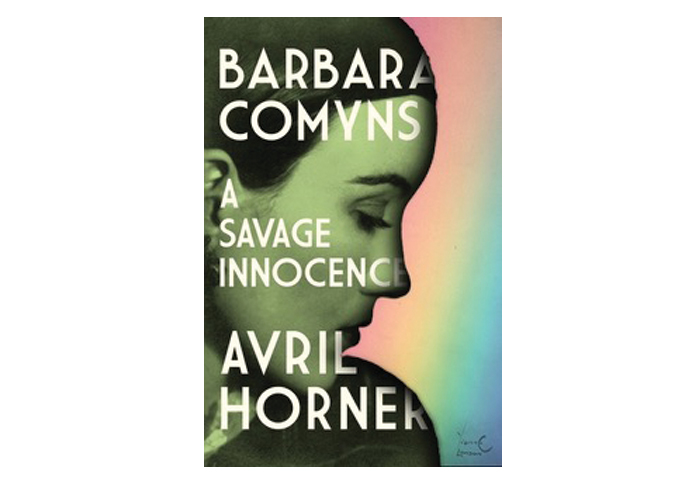Comyns and goings
The subject of a new biography, Barbara Comyns’ life was as extraordinary as her novels, says Maggie Gruner
Thursday, 25th April — By Maggie Gruner

Barbara Comyns
FILCHED from an American officer on the top deck of a bus in wartime, the small case surfaced at a house in Hampstead, where its contents spurred creative genius.
The case contained a brand-new Olivetti portable typewriter, which its thief, a builder working on the house, sold to his employer – “rough diamond” Arthur Price.
Price gave the typewriter to his lover, Barbara, who lived with him at the house in Harben Road, and it helped her pursue her unique writing talent.
Avril Horner describes the episode in her biography Barbara Comyns: A Savage Innocence, about a woman “whose life was as extraordinary as her novels”.
But Comyns has slipped under the radar, despite her fiction’s originality and its power, Horner asserts, “to entertain and to disturb in equal measure”.
“Barbara Comyns certainly deserves greater recognition,” Horner told Review.
The biography engagingly chronicles Barbara’s relationship with gun-toting, handsome racketeer Arthur Price in the late 1930s and early 1940s.
With his revolver, Price helped Barbara’s little son shoot a hole in the child’s faulty sailing boat on Hampstead Heath’s Whitestone pond. They watched the boat sink, while shocked onlookers stared at them.
A car dealer, Price carried a gun when he took stacks of cash to Warren Street, then a car-dealing venue. He also invested in property, and Barbara joined him in his car and property businesses.
They moved around, buying and selling big houses in areas including Hampstead and King Henry’s Road, Primrose Hill, in wartime, when property prices were rock bottom, renovating and converting the buildings into flats.
Bombing raids had battered London – in 1940 Barbara was shocked at the devastation of the World’s End area of Camden – and stealing from bombed-out houses was common.

Price, who inspired Barbara’s novel Mr Fox, written in the 1940s but not published until 1987, was one of her many lovers. She married twice.
She mixed with artists, writers, spivs and spies – including double agent Kim Philby. Barbara painted, sculpted and had jobs ranging from commercial artist to housekeeper.
When she bought a house in Greville Place, St John’s Wood, in 1943 she became a dog breeder and piano restorer. The latter business – “more of a racket than a restoration project” – sounds as if it might have appealed to Del-Boy Trotter.
Barbara advertised in papers along the lines of “Have inherited grand piano, can’t play, must sell.” Encouraged by Price, she bought old pianos at auctions and had them retuned, cleaned and if necessary repolished.
Her two children were told to keep doors to the house’s three reception rooms – which each accommodated a piano – shut in case a potential customer saw all three instruments at the same time and became suspicious.
In Greville Place in 1944 Barbara had a lucky escape when a V1 bomb struck nearby Mortimer Crescent.
Her unpublished story, Sunday Afternoon in St John’s Wood – based on exploring a bombed-out house with her son Julian – has a mother and child finding “strange detritus”, and the mother uncovering a severed hand, “dried like a hen’s claw”.
Horner, an Emeritus Professor of English at Kingston University, said Barbara was a “trail blazer in women’s writing, experimenting with surrealist effects, the uncanny and magical realism.”
Her life fed her fiction, which, laced with deadpan humour, explores issues including poverty and its effects, domestic abuse, emotional manipulation and exploitation.
Born in a large Warwickshire house with servants, the daughter of a physically abusive father, Barbara studied at an art school off Baker Street.
She was poverty-stricken as a young mother, with a son from her first marriage, to artist John Pemberton, and a daughter from an affair with a lover.
Horner said: “I was taken aback by the way her life so quickly unravelled when her lover Rupert Lee, the father of her second child, refused to take responsibility for his daughter and abandoned Barbara. This resulted in a period of intense suffering for her and led to a breakdown and a suicide attempt.”
But Barbara was a “survivor who later translated much of this suffering into brilliant fiction”.
Barbara and John Pemberton lived in West Hampstead, and later Belsize Park. They socialised with an arty crowd in Fitzrovia.
Their child, Julian, was born following his parents’ visit to the Easter funfair on Hampstead Heath, where Barbara fell and went into premature labour. She was taken to University College Hospital, later recalling “how awful it was having a baby before the National Health Service”.
Horner said that through a character in the novel Our Spoons Came From Woolworths Barbara “expressed her own anger about the appalling way women in the 1930s were treated in public hospitals when giving birth.
“Also, in documenting the way women were sexually harassed at work – having to endure ‘awful sucking kisses’ from male colleagues (A Touch of Mistletoe), for example – she anticipated the #MeToo movement.”
The House of Dolls “explores the circumstances that lead to women often being poorer than men once they retire.”
Barbara’s marriage to Pemberton crumbled.
She married her second husband, Richard Comyns Carr, at Hampstead register office. He worked for M16, and he and Barbara were friends with his colleague Kim Philby.
Barbara’s reputation as a writer dwindled between the mid-1960s and late-1970s, when she lived mostly in Spain, and she fell into obscurity until Virago Press started reissuing her work in the 1980s. The reprints were followed by a new, acclaimed novel. Since her death in 1992 her reputation has fluctuated.
Horner’s book, completed in 2020, was rejected by several major publishers.
“I suspect they thought that, because not everyone has heard of Barbara Comyns, the book would not sell.”
Finally accepted for publication in 2023, it is a meticulous, fascinating biography spotlighting a remarkable woman whose life, Horner said, would make an excellent film.
She added: “I think Carey Mulligan would make a good adult Barbara!”
• Barbara Comyns: A Savage Innocence. By Avril Horner. Manchester University Press, £30